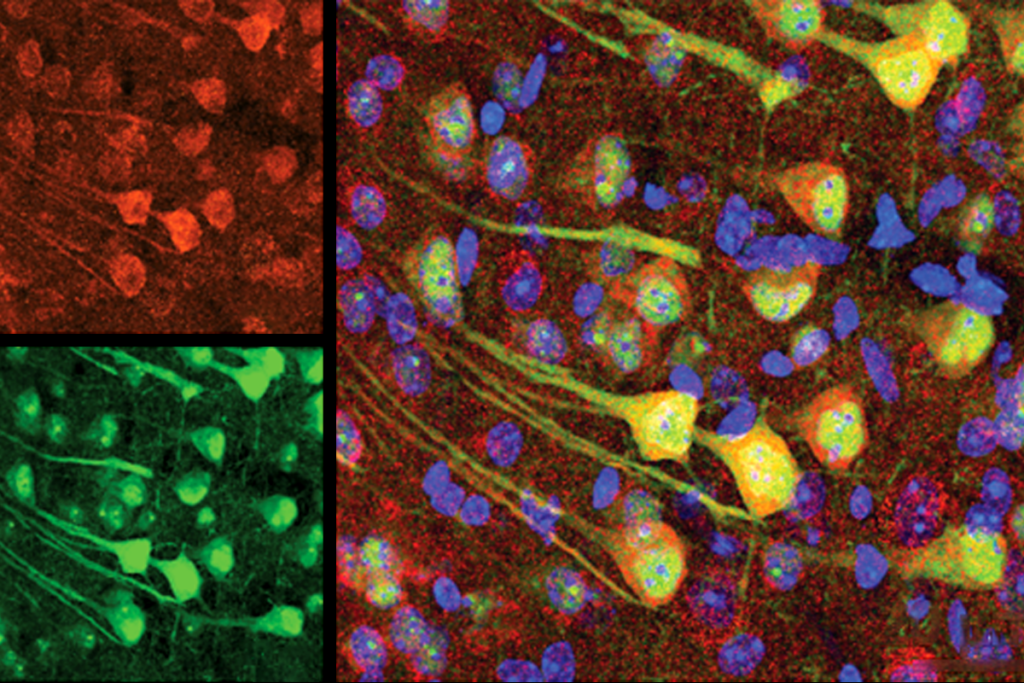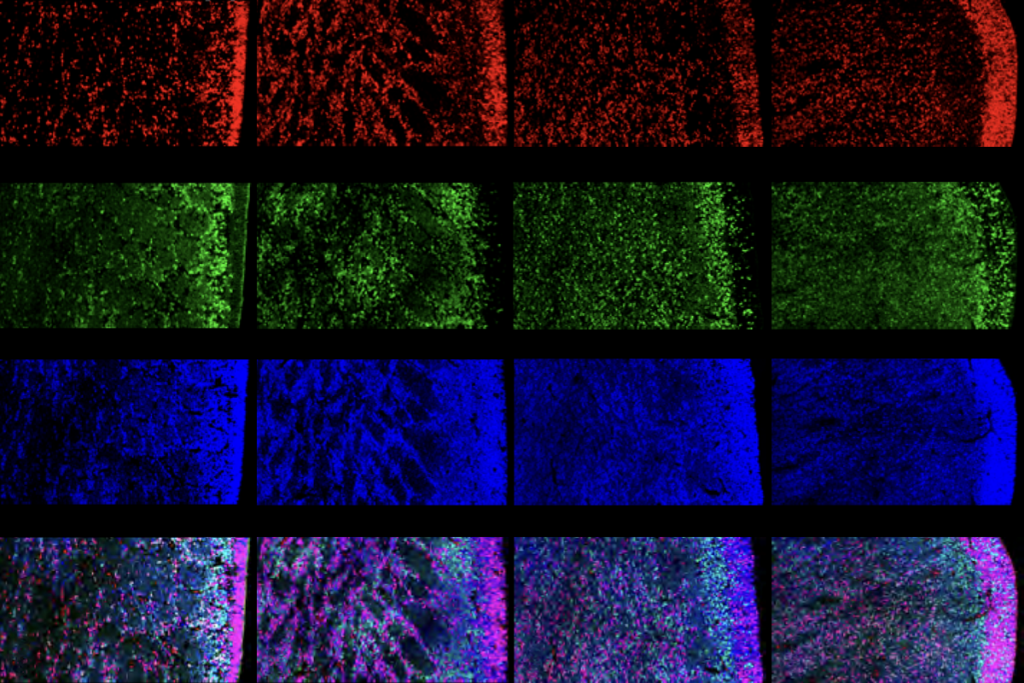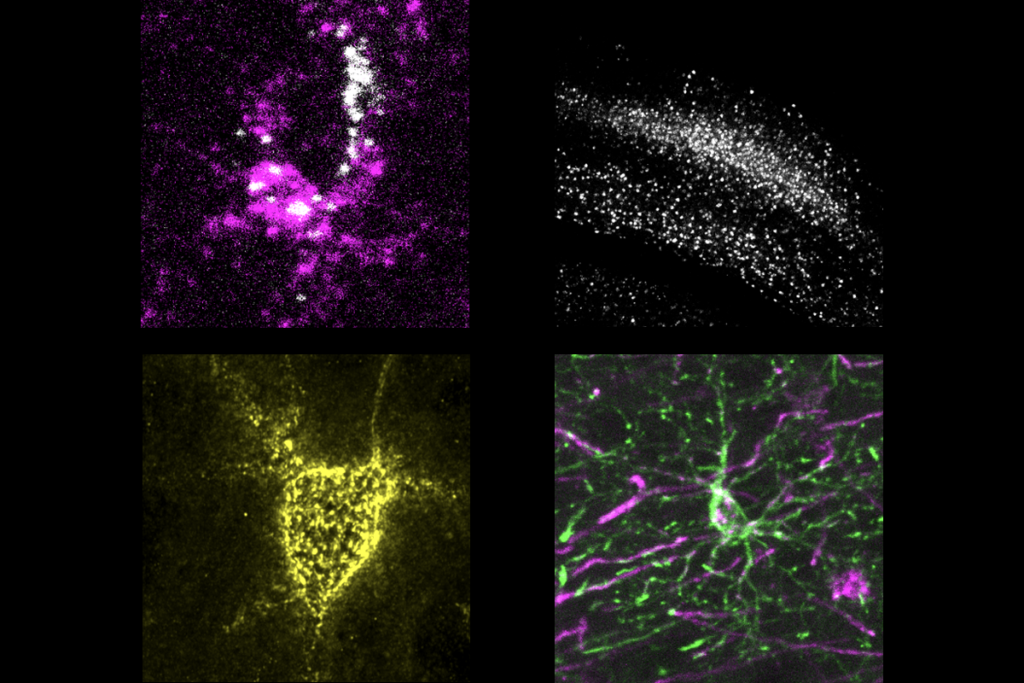Holly Barker is a freelance writer specializing in biology, medicine and psychology. She has a Ph.D. in clinical neuroscience from King’s College London in the United Kingdom and a B.Sc. degree in biochemistry from the University of Manchester. She has previously written for Discover and BioNews. She is based in London.

Holly Barker
Contributing writer
From this contributor
Astrocytes orchestrate oxytocin’s social effects in mice
The cells amplify oxytocin—and may be responsible for sex differences in social behavior, two preprints find.

Astrocytes orchestrate oxytocin’s social effects in mice
Aging neurons outsource garbage disposal, clog microglia
Degradation-resistant proteins pass from neurons to glial cells in a process that may spread protein clumps around the brain, according to a study in mice.

Aging neurons outsource garbage disposal, clog microglia
‘Tour de force’ study flags fount of interneurons in human brain
The newly discovered cell type might point to the origins of the inhibitory imbalance linked to autism and other conditions.

‘Tour de force’ study flags fount of interneurons in human brain
Astrocytes stabilize circuits in adult mouse brain
The glial cells secrete a protein that suppresses plasticity post-development.

Astrocytes stabilize circuits in adult mouse brain
Among brain changes studied in autism, spotlight shifts to subcortex
The striatum and thalamus are more likely than the cerebral cortex to express autism variants or bear transcriptional changes, two unpublished studies find.

Among brain changes studied in autism, spotlight shifts to subcortex
Explore more from The Transmitter
Neuro’s ark: Spying on the secret sensory world of ticks
Carola Städele, a self-proclaimed “tick magnet,” studies the arachnids’ sensory neurobiology—in other words, how these tiny parasites zero in on their next meal.

Neuro’s ark: Spying on the secret sensory world of ticks
Carola Städele, a self-proclaimed “tick magnet,” studies the arachnids’ sensory neurobiology—in other words, how these tiny parasites zero in on their next meal.
Autism in old age, and more
Here is a roundup of autism-related news and research spotted around the web for the week of 2 March.

Autism in old age, and more
Here is a roundup of autism-related news and research spotted around the web for the week of 2 March.
Lack of reviewers threatens robustness of neuroscience literature
Simple math suggests that small groups of scientists can significantly bias peer review.

Lack of reviewers threatens robustness of neuroscience literature
Simple math suggests that small groups of scientists can significantly bias peer review.